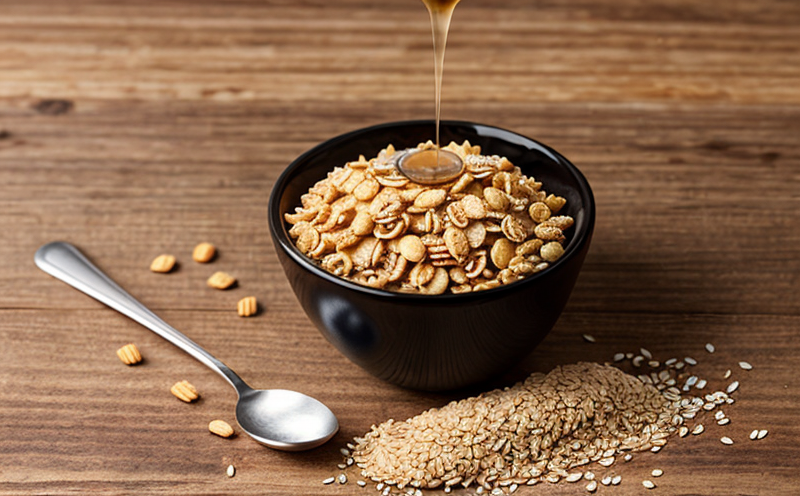ISO 21528 Enterobacteriaceae Testing in Aquaculture Products Validation Method Development Test
The ISO 21528 standard provides a robust framework for the validation of methods used to detect and quantify Enterobacteriaceae in aquaculture products. This method is particularly important as it ensures the safety and quality of aquatic food products, which are integral components of global protein sources. The presence of Enterobacteriaceae can indicate contamination by pathogenic bacteria such as Salmonella or Escherichia coli, both of which pose significant risks to human health.
The validation process under ISO 21528 involves several critical steps that ensure the method’s reliability and accuracy:
- Sample Collection: Proper sampling is crucial for accurate results. Samples should be collected from various points in the supply chain, including farms, processing plants, and distribution centers.
- Preparation: Samples undergo preliminary processing to ensure homogeneity and stability before analysis. This may involve washing, grinding, or dilution with appropriate media.
- Testing Methodology: The ISO 21528 standard specifies the use of culture-based techniques, such as plate count methods or membrane filtration, followed by biochemical identification using standardized reagents and procedures.
- Data Analysis: Results are interpreted according to predefined criteria that ensure the method’s precision and accuracy. This includes statistical analysis to determine the lower detection limit and repeatability of results.
- Validation Criteria: The method must demonstrate a high degree of reproducibility, sensitivity, and specificity. Validation is typically performed using certified reference materials or spiked samples.
The significance of this testing extends beyond food safety; it also plays a vital role in the sustainability of aquaculture practices. By ensuring the absence of harmful bacteria, ISO 21528 supports the development of more sustainable and efficient production methods that minimize environmental impact and promote healthier ecosystems.
Quality managers and compliance officers in the aquaculture sector rely on this testing to maintain strict standards for product safety. R&D engineers use it as part of their ongoing efforts to refine detection techniques, while procurement teams ensure that suppliers adhere to these stringent quality controls.
The implementation of ISO 21528 not only enhances public health but also supports the reputation and competitiveness of aquaculture products in the global market. By adhering to this international standard, companies can demonstrate their commitment to food safety and sustainability, which is increasingly important for consumer confidence and regulatory compliance.
In conclusion, ISO 21528 Enterobacteriaceae Testing ensures that aquaculture products meet rigorous standards of quality and safety. This method contributes significantly to the overall health and sustainability of the global food supply chain, making it an indispensable tool for stakeholders across the industry.
Eurolab Advantages
At Eurolab, we bring unparalleled expertise in ISO 21528 Enterobacteriaceae Testing to the aquaculture sector. Our team of microbiologists and food safety professionals is dedicated to providing accurate, reliable, and compliant testing services that meet international standards.
- Expertise: Our specialists are trained in the latest techniques and methodologies, ensuring that we can deliver precise results for even the most challenging samples.
- Accreditation: Eurolab is fully accredited to perform ISO 21528 testing, adhering to strict quality assurance protocols that ensure consistency and accuracy.
- Technology: We utilize state-of-the-art laboratory equipment and software solutions to enhance the efficiency and precision of our testing processes.
- Compliance: Our services are aligned with global regulatory requirements, helping clients navigate complex compliance landscapes with ease.
- Support: Eurolab offers comprehensive support throughout the testing process, from sample collection advice to detailed reporting and interpretation of results.
With a commitment to excellence, we ensure that our clients receive the highest quality service, every time. Whether you need routine testing or specialized validation studies, Eurolab is your trusted partner in ensuring food safety and sustainability in aquaculture products.
Quality and Reliability Assurance
At Eurolab, we understand the critical importance of quality assurance in every aspect of our work. Our commitment to excellence is reflected in the robust systems and processes that govern all stages of ISO 21528 Enterobacteriaceae Testing.
- Sample Integrity: We implement strict protocols for sample handling, storage, and transport to maintain integrity and prevent contamination.
- Data Accuracy: Our laboratories are equipped with advanced instrumentation and software that ensure the accuracy of every measurement taken during testing.
- Method Validation: Regular audits and updates of our methods ensure they remain current and compliant with international standards.
- Training and Certification: All staff undergo continuous training to stay abreast of the latest developments in microbiology and food safety.
- Certification: Eurolab’s laboratories are ISO 17025 accredited, ensuring that our services meet the highest standards of quality and reliability.
Our rigorous approach to quality assurance is designed not only to satisfy regulatory requirements but also to exceed them. By doing so, we provide clients with confidence in the accuracy and consistency of their test results.
We believe that reliability is the foundation of trust. Clients can rest assured that when they choose Eurolab for ISO 21528 Enterobacteriaceae Testing, they are partnering with a company that prioritizes quality at every level.
Environmental and Sustainability Contributions
The implementation of ISO 21528 Enterobacteriaceae Testing in the aquaculture sector contributes significantly to environmental sustainability by enhancing food safety and promoting healthier ecosystems. By ensuring that harmful bacteria are kept at bay, this testing supports more sustainable farming practices.
- Reduction in Antibiotic Use: By detecting potential contamination early, ISO 21528 helps prevent the overuse of antibiotics, which is a major concern for environmental sustainability.
- Ecosystem Health: Cleaner water and less contaminated feed contribute to healthier aquatic ecosystems, supporting biodiversity and reducing pollution.
- Consumer Trust: Ensuring that aquaculture products are safe and free from harmful bacteria fosters consumer confidence in sustainable food production methods.
- Regulatory Compliance: Adherence to international standards like ISO 21528 helps companies comply with environmental regulations, thereby minimizing legal risks and enhancing their reputation.
Through these initiatives, Eurolab plays a key role in fostering the sustainability of aquaculture practices. By prioritizing food safety and quality, we contribute to a healthier planet for future generations.





